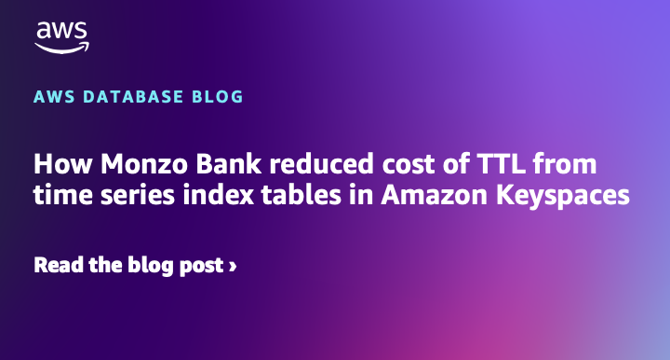Amazon
7d
381

Image Credit: Amazon
How Monzo Bank reduced cost of TTL from time series index tables in Amazon Keyspaces
- Monzo Bank reduced costs on TTL from time series index tables in Amazon Keyspaces by using bulk deletes to eliminate the use of TTLs.
- Monzo's event index table indexes events on its platform over time with a large volume of events flowing through its platform.
- Using the TTL feature for many years proved to be expensive for Monzo as the write throughput increased with the bank's growth.
- Monzo used a bucketing mechanism to efficiently distribute rows across multiple tables for dynamic dropping of old tables and creating new tables as needed.
- Table management code was needed to be written for creating, dropping and scaling tables and sharding code was written for routing queries.
- Amazon Keyspaces recently lowered its TTL cost by 75%, yet this pattern can save even more costs.
- Monzo slowly ramped up dual-writing to the new index table in shadow mode to test the suitability and production readiness of the write path.
- Finally, all of the rows in the old index table expired because of their Time to Live settings before we could transition to the new index table fully.
- The new sharded index table has been running in Monzo's production environment without issue for several months.
- Code complexity was introduced as a result of this change, but Monzo believes that the cost savings are worth the added complexity.
Read Full Article
22 Likes
For uninterrupted reading, download the app